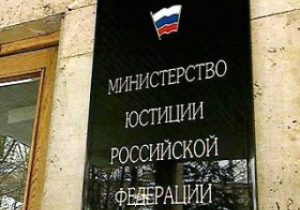An ICJ legal opinion issued today concludes that recent Amendments to the NGO Law amount to an illegitimate interference with rights to freedom of association and expression protected in international human rights law.
Amendments to the NGO Law require a wide range of Russian non governmental organizations (NGOs) to register as “foreign agents” or else face severe sanctions.
Analyzing the law and its recent application in practice, the ICJ opinion describes the serious impact of the law on Russian civil society organizations that seek to contribute to public debate on issues such as the protection of human rights or the environment.
Under the law, NGOs that receive donations from foreign sources and engage in “political activity” must register as “foreign agents”.
Those NGOs that register as foreign agents are subject to additional burdensome administrative requirements. NGOs that fall within the definition of foreign agents but do not register are liable to heavy fines and other penalties.
Róisín Pillay, Director of the Europe Programme at the ICJ said: “This law confronts many NGOs with unacceptable choices. They may opt to stop receiving foreign funding, which may threaten their very viability and survival. They may withdraw from any activity that could be considered ‘political’, meaning that they cease to take action or voice their opinions on the issues of public concern that the NGO was formed to address. Or, they may register as a foreign agent, which is likely to impair the organization’s capacity to function effectively, if at all. Whichever route an NGO chooses, its freedom of association and expression will be detrimentally affected.”
The ICJ opinion concludes that the inherently vague scope of application of the law, and in particular the wide and unclear definition of “political activity” as well as of other terms in the law, mean that NGOs are unable to predict with any certainty whether or not they will be required to register as “foreign agents”, or when they will be liable to criminal or administrative penalties under the law.
It adds that the broad terms in which the law is formulated leave room for inconsistent or arbitrary application of the law by courts, contrary to international human rights law.
The opinion also notes that it is not clear that the restrictive measures introduced by the amendments serve any of the legitimate aims recognized by international human rights law on freedom of expression or freedom of association.
It finds that the severity of the punitive measures for NGOs that fail to register as “foreign agents” in accordance with the law, as well as the additional requirements imposed on those that do, cannot be justified as necessary and proportionate restrictions on rights.
Róisín Pillay added: “Given the wide range of NGOs directly affected by the law, and the even wider group on whose exercise of their freedom of association and expression the law is likely to have a chilling effect, it is clear to us that the measures are disproportionate to any aims to which they might be directed, and therefore violate international human rights law.”
Contact:
Róisin Pillay, Director, Europe Programme, t + 32 273 48 46, roisin.pillay(a)icj.org
Temur Shakirov, Legal Adviser, Europe Programme, t + 41 22 979 38 32, temur.shakirov(a)icj.org
Russia-NGO law amendments-analysis brief-2014 (download in pdf)
Russia-NGO law amendments-press release-2014-rus (download in pdf)
Russia-NGO law amendments-analysis brief-2014-rus (download in pdf)

